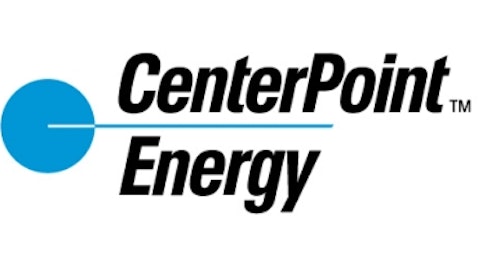The quotation marks are necessary caveats, since some recent analyses of hydropower question the environmentalism of larger dams. A recent Sierra Club position paper supports existing run-of-river dams producing less than 10 MW, but large dams don’t make the cut. If the EPA were to adopt similar views that hydroelectric plants cause ecological damage and significant greenhouse gas emissions from reservoirs, the helping hand of green energy policy might pull back from hydro.
Who’s hanging on to hydro?
Many utilities have small but significant hydro assets that help to keep costs low and steady when water levels are high and other fuel prices take a turn for the worse.
Atlantic Power Corp (NYSE:AT)‘s stock recently plummeted on news of a slashed dividend and dismal quarter, and the company’s counting on renewables to put it back in business. The utility currently generates 5% of its energy from four hydroelectric facilities and expects to keep assets steady as it focuses on solar and wind. Compared with hydro’s limited expansion and capital intensiveness, wind’s production tax credit and solar’s investment tax credit provide low-cost renewable opportunities for this utility.

Source: Atlantic Power Deutsche Bank Leverage Financed Conference Presentation.
Exelon Corporation (NYSE:EXC) is best known for its nuclear power, a close cousin to hydropower. Nuclear is capital intensive and “clean” and produces relatively steady electricity generation over a long time period. Exelon Corporation (NYSE:EXC) relies on nuclear for 55% of total generating capacity, while hydro accounts for 6%.

Source: Exelon investor relations website.
The utility currently generates around 2,000 MW of hydropower from 24 facilities. Defying common conceptions that hydropower’s given all she’s got, a 2001 upgrade at a Maryland station improved output by 11.3%.
Debt-heavy FirstEnergy Corp. (NYSE:FE) announced during its latest earnings report that it intends to sell off its competitive hydro assets to help raise $1.5 billion. The utility had previously planned to sell the nearly 1,180 MW fleet in early 2015 but will attempt to bump up the timeline as it balances its books and refocuses on transmission. The company currently relies on hydroelectric power for 9% of its total generation capacity.
In absolute terms, Duke Energy Corp (NYSE:DUK) is the tsunami of hydroelectric power. The utility has its roots in hydropower, and the company generates around 3,525 MW from 18 different stations. In December, Duke Energy Corp (NYSE:DUK) acquired two hydro plants in Chile to add 140 MW to its international business.
However, the utility’s recent earnings call also pointed to one of the darker sides of hydro: reduced rainfall. Reservoirs at its Brazil facilities remain low, increasing relative costs of production and significantly diluting hydro’s value add. Any long-term dips could cause Duke Energy Corp (NYSE:DUK) to reduce its current reliance on hydro for 6% of total generating capacity.
Hydrate or die?
NextEra Energy, Inc. (NYSE:NEE) made a calculated decision to kick hydro out to focus funds elsewhere. Atlantic, Exelon Corporation (NYSE:EXC), and Duke Energy Corp (NYSE:DUK) all have a small but significant stake in hydro and should benefit from its natural diversification and generally steady flow. FirstEnergy is using hydro sales to get quick cash and may not be making the best long-term decision by turning its back on this energy source. Hydro plays an important role in our nation’s energy generation, but it’s up to each utility to determine for itself if water works for them.
The article Is Hydro Draining Your Portfolio’s Profits? originally appeared on Fool.com.
Fool contributor Justin Loiseau has no position in any stocks mentioned, but he does use electricity. You can follow him on Twitter, @TMFJLo, and on Motley Fool CAPS, @TMFJLo.The Motley Fool recommends Exelon.
Copyright © 1995 – 2013 The Motley Fool, LLC. All rights reserved. The Motley Fool has a disclosure policy.





